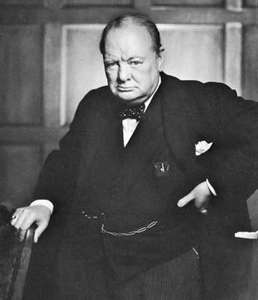Is existentialism the new mainstream line of thought? Has it become hipster and cool because it’s quite different? I have heard a lot of talk recently about existentialism in the modern world. As a college student who has found her way to existentialism as a personal philosophical belief system, I was intrigued in the growing number of conversations I was having with others making their way to this philosophy as well.
Existentialism is the philosophical movement that emphasizes the exercise of free will as an individual. At the core, existentialism is the belief that an individual accepts their condition as human, makes their own choices, and finds their own meaning independent of other entities. Christian existentialists like myself (and the likes of Søren Kierkegaard) believe that this meaning comes from God.
I realize that not everyone would like to spend their days pondering the meanings of their lives and whether or not they are actually exercising free choice. While this seems complicated, implementing existentialism in one’s daily life is actually pretty simple. Here are four ways you can implement this philosophy into your life as a college student:
1. Accept where you are.
As previously stated, at the core of existentialism is the belief that the individual must accept the human condition. Essentially, this just means that we’re all human, and we accept the struggles and frustrations of life that come as a result of this fact. Maybe you didn’t do too hot on that economics exam. Maybe you aren’t getting along with your parents. Maybe calculus is the equivalent of learning gibberish, in your opinion. Whatever your struggles and crazy moments may be, don’t worry too much–accept them as they come. It’s alright to be upset or to feel lonely or to struggle with time management. If you accept what is happening in the present moment, you’ll likely save yourself the worry of “what ifs” and of not knowing the next step.
2. Be active about your life.
Speaking of the next step, the moment you accept where you are is also the moment where your options become more clear. This doesn’t mean that those solutions won’t be difficult in the process or that there aren’t multiple solutions to your problems, but acceptance of your situation will bring you the mental clarity and peace you need to make an educated choice. You can weigh your options and consider the consequences, which also makes those consequences a little more reasonable to deal with at times.On the flip side of this, if you’re unhappy with something, go out and change it. Whether that be changing rooms, majors, or your perspective, existentialism encourages active choice. Again, this can be difficult, but feeling the same way about the same problem for an extended period of time gets boring and can even be detrimental to your mental health. Be active in the pursuit of what you believe is right or what you believe will make you happy, so long as you aren’t intentionally harming others in the process.
3. Break the mold.
Many existentialists, particularly Simone de Beauvoir, believe that choosing to adhere to the mainstream social requirements and constructs isn’t a free choice at all. True freedom comes in successful rebellion of things that try to define you. You don’t always have to do things because everyone else does them or buy things because everyone else wears them. If you genuinely like something, whether it be weird or popular, don’t be afraid to pursue it. This will make what you do more meaningful to you and a whole lot more enjoyable as well.
4. Make like Winston Churchill, and never, never, never give up.
Life is tough. We all face the awkward moments, the tough moments, and the times where we feel like we can’t go on. However, when you think about it, if we weren’t challenged by our lives, we would never grow or evolve. We would never learn anything new or be able to handle anything outside of our comfort zones. We would be eternally stuck in the same cycle of behavior.Every life is meaningful, every action and opinion matters, and every path worth taking is full of twists, turns, and bumps along the way. Existentialism doesn’t just apply to abstract ideals, freedoms, and absurd concepts. Existentialism emphasizes choosing the right path and the right goal is never going to be easy. Just remember that everything you hope to achieve is possible and absolutely worth it in the end.



















































































































Anonymous • Mar 31, 2019 at 8:23 pm
5